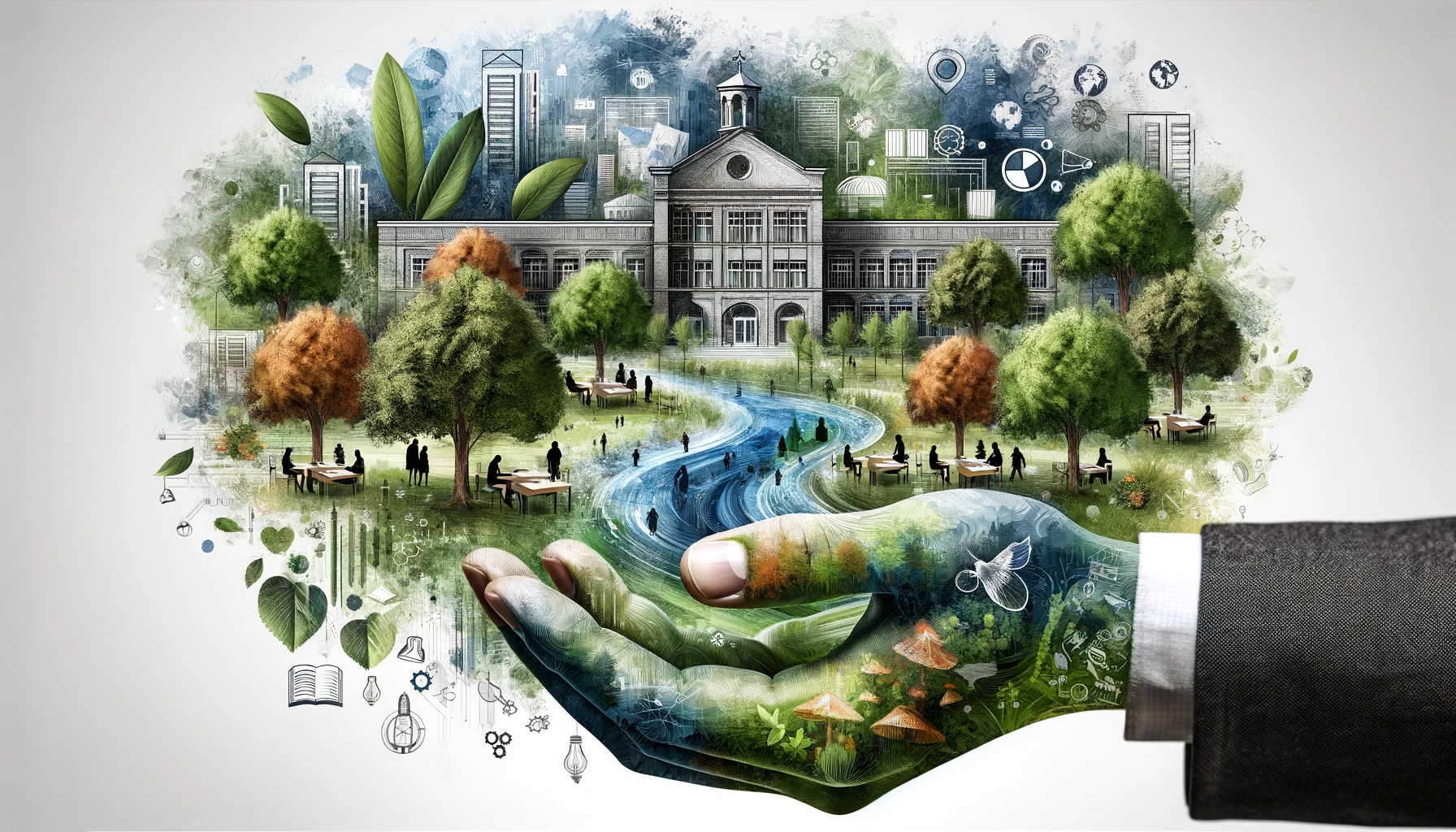
Working collaboratively with OBU’s SRF Network, we organises two awareness-raising webinars targeting students, faculty, and administrative staff from TEDU and OBU. The first webinar included “get to know each other” sessions in which TEDU and OBU staff and students discussed sustainability attempts in their respective institutions, becoming acquainted with one another as partner institutions.
The second webinar included all stakeholders discussing sustainability-related trends and challenges regarding integrating SDGs into higher education curricula.
A digital platform (i.e., website) to announce webinars and promote involvement in other project activities was created. In the later stages of the project, this platform will be utilised as a common ground for all stakeholders to further discuss sustainability, particularly on integrating the SDGs into higher education curricula.

TEDU followed up on the webinars through an open call for proposals targeting the smooth integration of the SDGs into the curricula of undergraduate courses. An advisory board including volunteer professionals from various sectors, NGOs, academics, administrative staff, and student representatives will be active in co-creatively selecting the successful projects that will serve as the bases for curriculum transformation to be implemented in Stage 3.
OBU will concentrate on auditing its practices of integrating sustainability and resilience into its curricula through the SRF Network and its Education for Sustainable Development Working Group. The co-creation and innovative aspects of existing practices and the opportunities for integrating these aspects into future initiatives will be at the core of the OBU audit. It will share best practices with TEDU’s successful transformation proposals. These best practice examples will provide the TEDU initiatives with a springing board for co-creation and innovation.

We will initiate transformation in course design at TEDU with the active participation of all stakeholders involved. The course design process will be facilitated by the “Education for Sustainable Development (ESD) Learning Community”, comprising:
- the TEDU project team
- the SRF project team
- TEDU faculty members volunteering to design SDG-integrated courses
- some SRF members who would like to take part
- student representatives
As the project progresses, interdisciplinary sub-learning communities will be formed to target course design. In these gatherings, multiple viewpoints from different fields of study, such as engineering, architecture, education and/or business administration, will be put forward to set a baseline for interdisciplinary course design. These communities will occasionally merge with the ESD Learning Community to share experiences.
Under the guidance of the ESD Learning Community, the interdisciplinary sub-learning communities will act as the key agents of change in achieving curriculum transformation. At the initial stage of the course design process, the ESD Learning Community will cooperate in creating guidelines for course design. Based on these guidelines, the sub-learning communities will select courses to be designed or redesigned in an interdisciplinary manner so that different disciplinary approaches will work on complex problems associated with sustainability and/or resilience. Courses will be piloted and assessed using student’ feedback and potential employers’ input and then evaluated to monitor how effectively the SDGs were integrated into these newly (re)designed courses. We will also utilise the open digital platform (i.e., website) to enable the sub-learning communities to publicly share their SDG-integrated course teaching diaries and testimonies including course syllabus redesign, teaching and assessment methods, and their use of digital tools. To observe and investigate OBU’s sustainability-oriented curricular activities on site, create further collaboration opportunities, and share project-related knowledge, know-how and experiences, the TEDU project team will pay a visit to OBU’s SRF network. This stage will mark the end of the project’s first year.